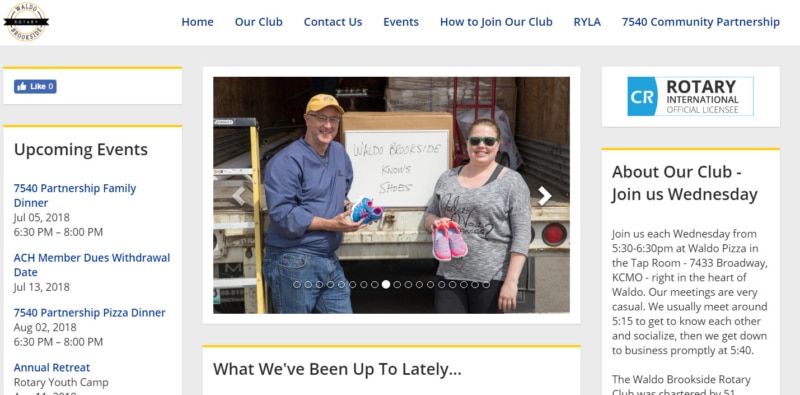Year End Review
 In previous articles we’ve made the case for having an annual meeting to make sure your staff are properly rewarded for the year that has passed and are properly oriented for the year to come. But, have you considered doing an annual meeting for yourself? A Year End Review, you could call it. Enough time has passed since the beginning of the year that you can’t defer to holidays and time off. We are well and truly into the year, but it’s also a perfect time, if you haven’t already done so, to look back.
In previous articles we’ve made the case for having an annual meeting to make sure your staff are properly rewarded for the year that has passed and are properly oriented for the year to come. But, have you considered doing an annual meeting for yourself? A Year End Review, you could call it. Enough time has passed since the beginning of the year that you can’t defer to holidays and time off. We are well and truly into the year, but it’s also a perfect time, if you haven’t already done so, to look back.
How did it go?
The question that sits above all the other more specific ones is “how did last year go?” Did you feel good about it? Why or why not?
This assumes some things: that you had a plan or orientation for last year whereby you have something to judge or compare it to. If you didn’t have a plan, well that’s only fine if you actually intended that, most probably because you are happy with your performance and hit the cruise control button for your life last year. And you might be ready to do that again this year. But the point is that’s not laziness. That’s being intentional. It’s knowing what you want and then executing it.
The same cannot be said of the person who put up some goals, entirely missed them, and then moves into the next year setting new goals without examining what went wrong with last year.
If you own a business
How did we do against last year’s numbers? What will we do this year? Am I still excited about this? Why or why not? Do I want to sell? If not, do I have an exit strategy?
If you want to own a business
Why do you want to own a business? Have you talked to a broker about it? Have you taken at least a basic look at how you would finance it? How serious are you about it?
If you have a job
How was your pay and performance this last year? Are you happy with them? Why or why not? What will be your exciting challenges this year? Will there be any? Why or why not? Is this really what you want to do – short, medium, or long term?
If you want to get a new job (or own a business – see above!)
Why are you unhappy at your current job? What are the top things that you dislike that you would like to see rectified in a new situation? How serious are you about making this change? Why or why not?
We have a pretty good record of hitting our goals here at Apex, but we don’t let that build complacency. We’re always looking to improve and do better every year. Give us a call to see if we can be of help in your goals for this year.
Apex is actively searching for top quality candidates to join our team of Advisors. If you’re interested in a career helping people buy or sell a business, think you have relevant experience, and want to find out more, please call Doug Hubler, President of Apex, at (913) 433-2303.



 Earlier this year, Todd Edwin Rood was sentenced in federal court for lying about the assets and liabilities of a company he’d sold just the previous year, Rood Machine & Engineering, in Kearney, Missouri.
Earlier this year, Todd Edwin Rood was sentenced in federal court for lying about the assets and liabilities of a company he’d sold just the previous year, Rood Machine & Engineering, in Kearney, Missouri.  In all likelihood, you’ve already heard about the far-reaching Cambridge Analytica/Facebook scandal. In case you haven’t, here’s a brief summary:
In all likelihood, you’ve already heard about the far-reaching Cambridge Analytica/Facebook scandal. In case you haven’t, here’s a brief summary:  In a previous article we discussed
In a previous article we discussed  Delegation.
Delegation.  In today’s competitive marketplace, it’s important to consider key differentiators for your company when it comes to attracting (and more importantly, retaining) key members of your team.
In today’s competitive marketplace, it’s important to consider key differentiators for your company when it comes to attracting (and more importantly, retaining) key members of your team.  2017 was an eventful year in many respects. Politics, cryptocurrency, and social issues were constantly in turmoil and at the forefront of discussion.
2017 was an eventful year in many respects. Politics, cryptocurrency, and social issues were constantly in turmoil and at the forefront of discussion.  Most of you may be familiar with the “annual meetings” required by law for corporations. For small businesses these meetings are often virtual and imaginary, a function that’s simply required for corporate compliance.
Most of you may be familiar with the “annual meetings” required by law for corporations. For small businesses these meetings are often virtual and imaginary, a function that’s simply required for corporate compliance. 